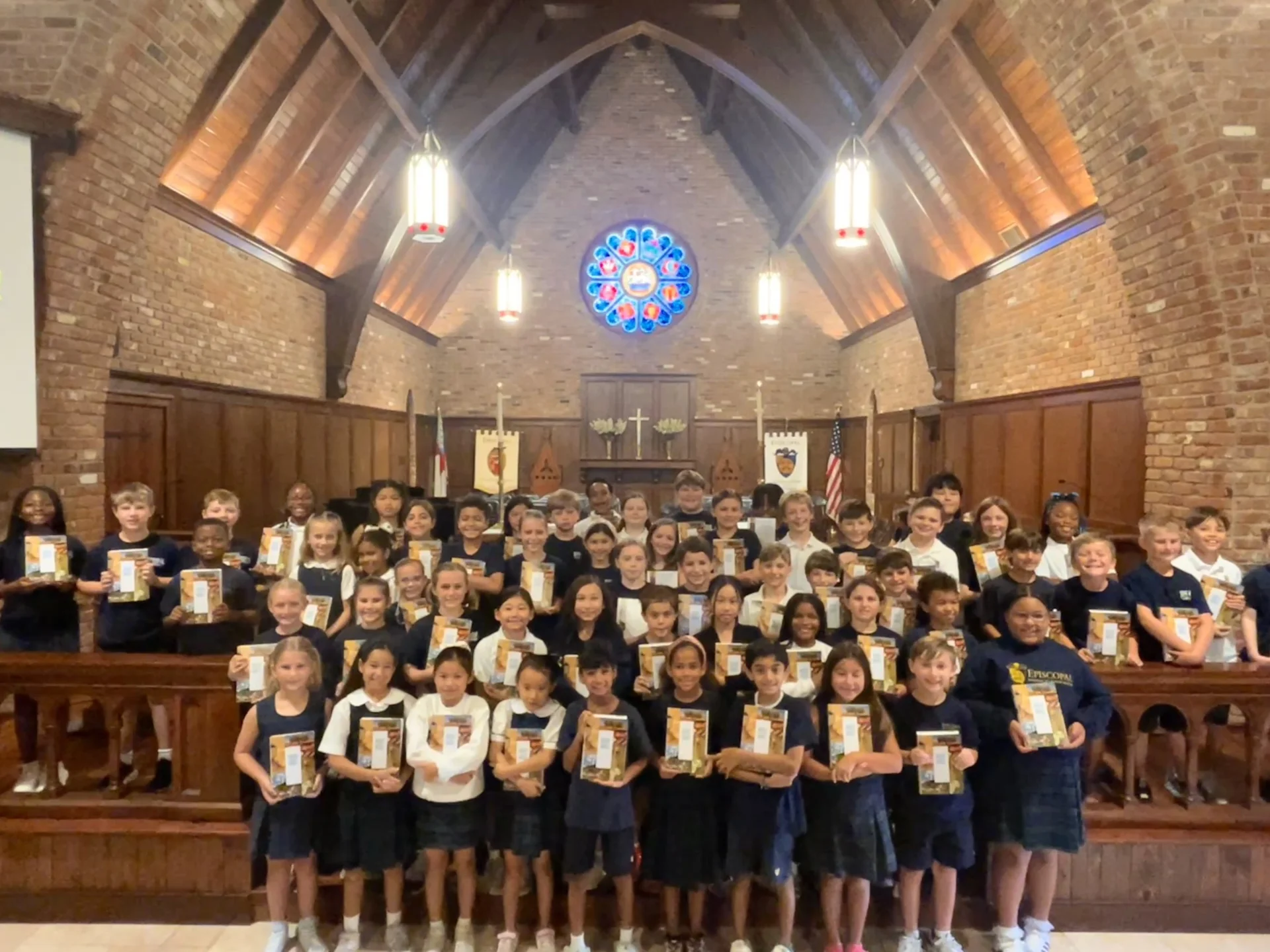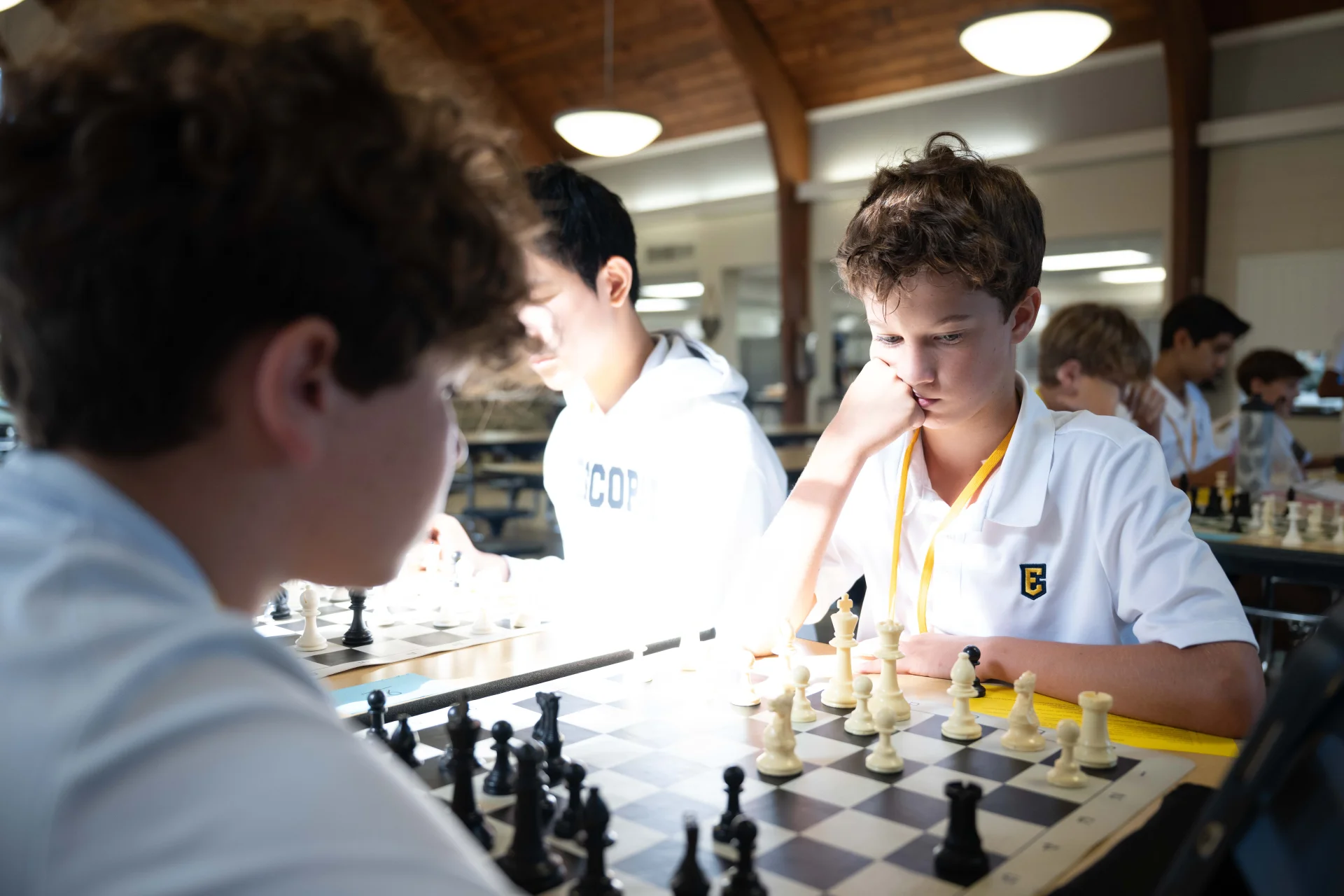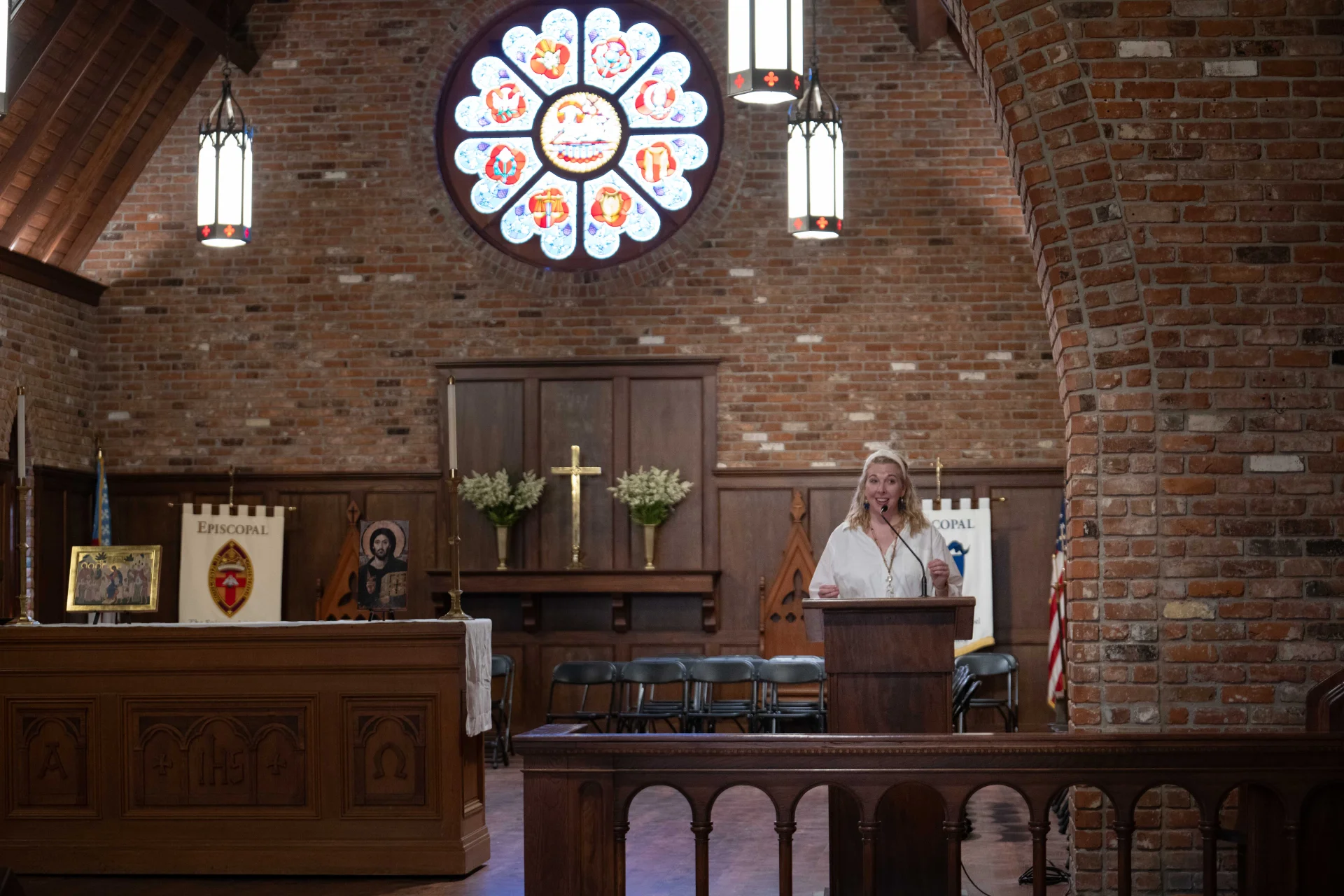- Admission
- Discover Episcopal
- Our Program
- Athletics
- Arts
- Spirituality
- Student Life
- Support Episcopal
- Alumni
- Parent Support
- Knightly News
- Contact Us
- Calendar
- School Store
- Lunch Menu
« Back
Why We Should Care About Poetry
February 18th, 2022

Over the course of thousands of years, the world has drastically changed with rising and falling empires. Still, poetry has stayed consistently present throughout all of that time. Poetic literature is one of the oldest human innovations that has still survived to this day. However, society has come to the point where the popularity of poetry is on a major decline. The growing indifference towards literature could be traced to a variety of factors. Still, the cause of the issue is far less important than the issue itself.
Before I had picked my topic for a Thesis paper, I knew that my argument would focus on literature. However, it was difficult to choose a specific field considering how broad literature is. I was initially drawn to a topic which I already had experience. However, I challenged myself to branch out into something I had little knowledge of. Literature is such a broad subject, the possibilities of study are near-endless. This means that there are hundreds of avenues for impactful study. However, when I talked to a teacher, they recommended that I look into a field of literature that is commonly brushed over today: literature from World War I.
Interestingly, the First World War is a period that most people know little about; it is often shadowed by the more exciting World War II. Still, the war had an immense impact on European society; there is a reason it was dubbed the war to end all wars. Still, we often skip over what role the war played in the lives of those living through it.
The most interesting part of World War I, to me at least, is that the soldiers who fought it were young adults. Most English soldiers were barely into adulthood, while some were so eager that they lied about their age to fight. I was extremely drawn to this fact, as it seemed odd to me. Why would so many young men, about to enter the prime of their lives, be so eager to risk their lives? As a teenager, these questions captivated me. While I live over 100 years after these soldiers, I am of a similar age to them. What would I have done if I was thrust into their situations? Through research, I hoped to uncover the answers surrounding these questions through the lens of literature.
I think most people can understand the pressures facing young adults. They are in an awkward middle phase of life in which they are no longer children, but they are not old enough to be respected as adults. Everyone around them seems to place extremely high expectations on who they should or shouldn’t be. Additionally, peer pressure and a desire to conform are most oppressive during this age. Now take those issues, and add a war threatening to consume all of Europe to that list.
In England, it was quickly seen as an honorable and righteous cause to fight in the war. There is a lot that could be argued as to why this idea sprung up. However, it is clear that the wartime fervor was built upon already established during the Victorian era. The society of Victorian Britain focused on now-traditional ideals of masculinity, heralding traits such as stoicism and athleticism. With a society holding these traits close to their hearts, it was an easy task to convince them of the importance of fighting for their country. The English government quickly created a sense of urgency in the populace through propaganda.
However, the eagerness of the English youth was not met with opportunities for glory and fame. Instead, that eagerness was met with a reality that fell far short of any expectations. The conditions of the war were horrible not only to fight in but to live in as well. Most of the soldiers who fought in the dark, damp trenches were not pleased with the conditions. My thesis explores this reaction, but it focuses on one way in which soldiers displayed their upsetness: poetry. Interestingly, poetry was very popular among soldiers, many of whom needed a way to stay occupied during the hours in the trenches.
My thesis explores how the works of war poets such as Wilfred Owen displayed a clear departure from the idealistic literature of Victorian England and portrayed the world in a more realistic manner. In doing this, this poetry marked a leap for literature.
Hear more from Justin and the LAUNCH presenters on March 18th. LAUNCH is an Upper School showcase started by a small group of students in 2014. This full day, TEDx-style event features the talents, research and innovations of tomorrow's leaders. You don't want to miss this special event!

Justin Dynes is a member of Episcopal’s Class of 2022, and he has attended Episcopal since Kindergarten. He is on the Track and Field team, in Quiz Bowl, Mu Alpha Theta, and Mock Trial. His favorite hobbies are reading, writing, and trivia. Through his Thesis, he hopes to further his love for literature while examining its effects on society. In college, he plans to study Biology with a Pre-Med focus as well as English.
The Episcopal School of Baton Rouge 2025-2026 application is now available! For more information on the application process, to schedule a tour, or learn more about the private school, contact us at [email protected] or 225-755-2685.
Other articles to consider
 Sep11A Tradition of Faith and Community: The Fourth Grade Bible Blessing
Sep11A Tradition of Faith and Community: The Fourth Grade Bible BlessingLower School celebrated a milestone as fourth grade students received new Bibles.
See Details Sep11Introducing the Class of 2026 National Merit Semifinalists and Commended Scholars!
Sep11Introducing the Class of 2026 National Merit Semifinalists and Commended Scholars!Introducing the Class of 2026 National Merit Semifinalists and Commended Scholars!
See Details Sep5Building Community through Chess
Sep5Building Community through ChessMembers of the Middle School Chess Club describe it as a fun opportunity to become a better chess player. Read more about this club that has recently experienced tremendous growth.
See Details Sep4Finding Joy and Community in New Experiences
Sep4Finding Joy and Community in New ExperiencesCarrie Poynot challenges others not to fear failure and to find joy in trying new things. Read her recent Upper School Chapel message.
See Details
Categories
- All
- Admission
- Athletics
- College Bound 2019
- College Bound 2020
- College Bound 2021
- College Bound 2022
- College Bound 2023
- College Bound 2024
- College Bound 2025
- Counselors Corner
- Episcopal Alumni
- Giving
- Head Of School
- Lower School
- Middle School
- Spirituality And Service
- Student Work
- The Teachers' Lounge
- Upper School
- Visual And Performing Arts
Recent Articles
- 09/11/25A Tradition of Faith and Community: The Fourth Grade Bible Blessing
- 09/11/25Introducing the Class of 2026 National Merit Semifinalists and Commended Scholars!
- 09/5/25Building Community through Chess
- 09/4/25Finding Joy and Community in New Experiences
- 08/28/25Beyond Numbers: Bringing Social/Emotional Learning into Middle School Math
- 08/28/25Pursue Excellence: The Center for Excellence in Teaching & Learning











